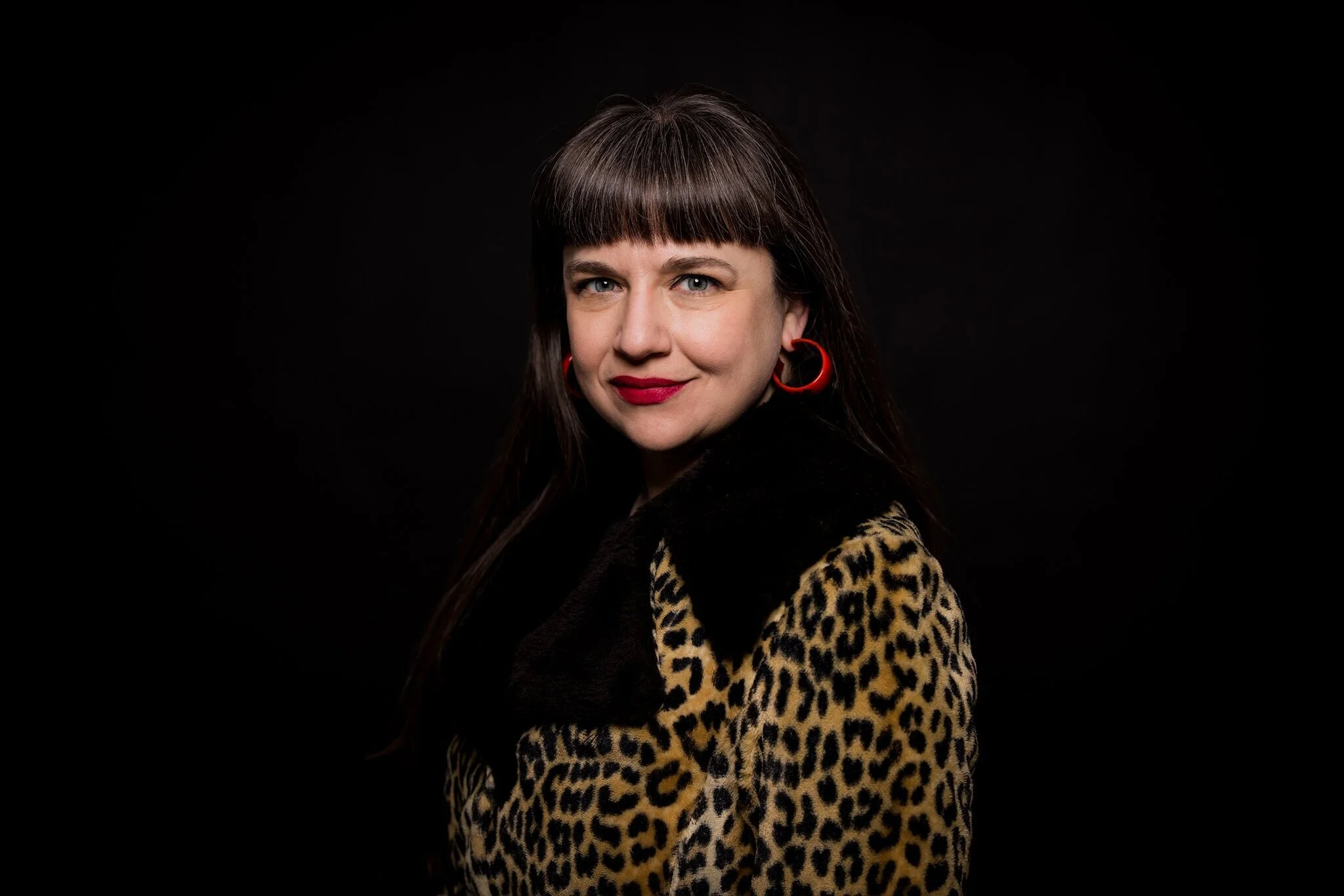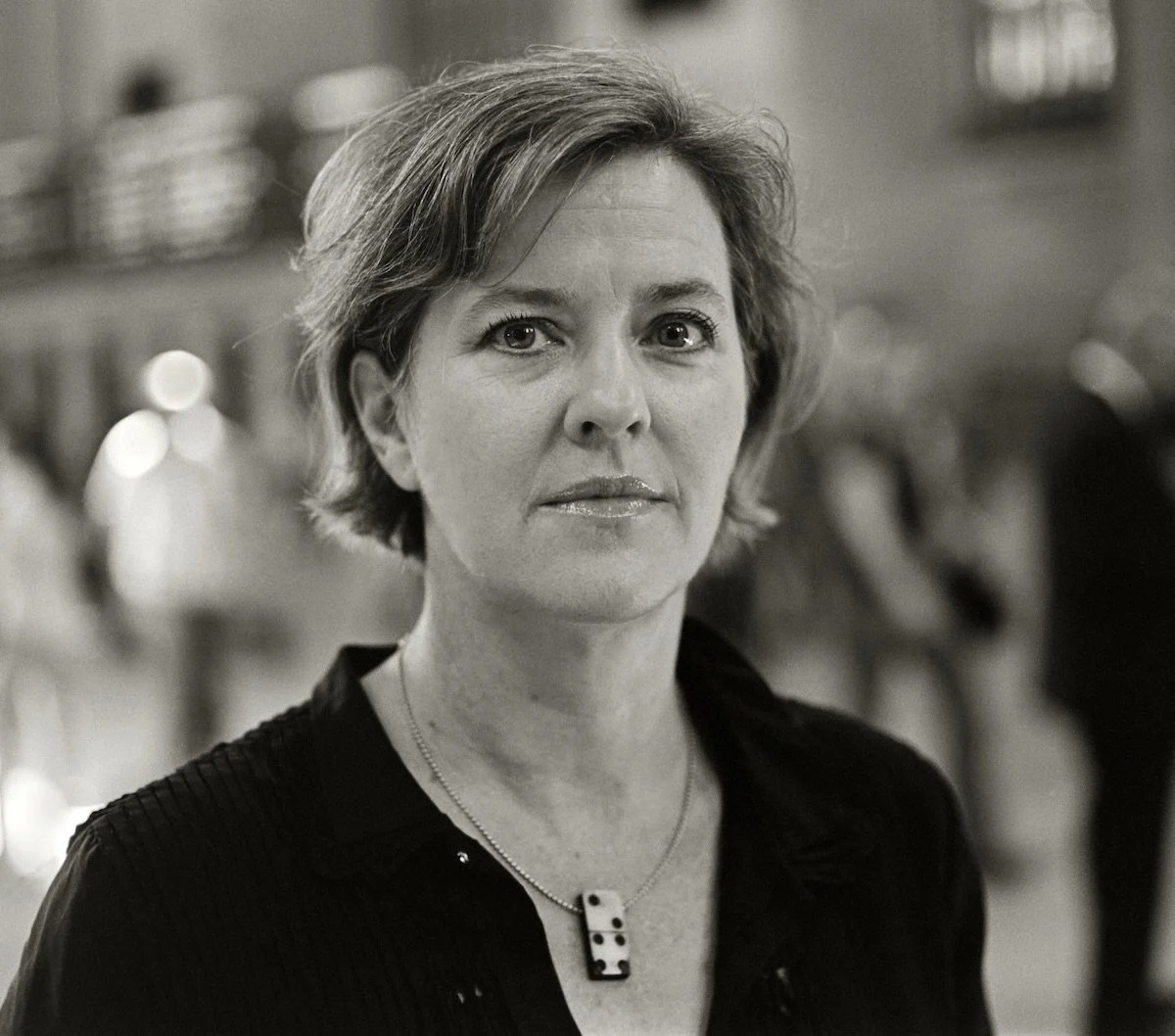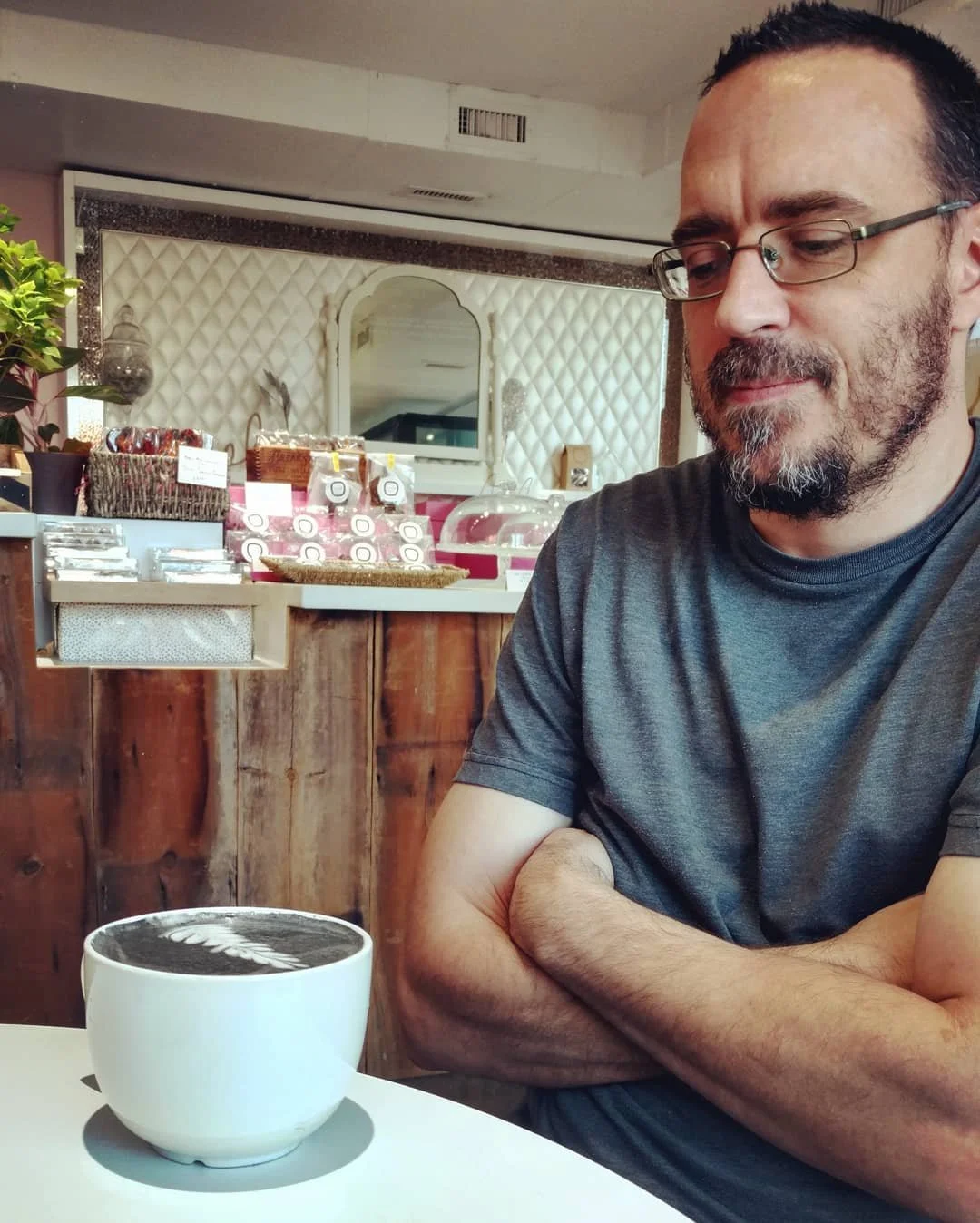In 2012, poet Mikko Harvey began writing what would later become his debut poetry collection. Six years later and Unstable Neighbourhood Rabbit (House of Anansi) is alive, is roaming the woodlands, is climbing high skyscrapers. Released back in April, the 41 poem collection is a smoothie blender of absurdist fables, lonely surrealism, and tender magic. How fitting indeed that Harvey is the poetry editor for Fairy Tale Review. In his book, he offers snippets and vignettes and snapshots that throw you around the room. Like a commercial that opens with a joke and has you weeping by the end. With his debut out in the world (and new poems appearing on his one long scroll), I asked Harvey a few questions, leading him to discuss shy poems, auto-biographical poems, tossing poems off of mountains, and whispering to himself using the voice memo app.
via Hobart
Your debut collection of poetry is out into the world and you've given a handful of readings. How do you feel about everything right now?
I feel lucky to have gone on the odd yet wonderful journey of publishing a book. I feel like I learned a lot from the process (I actually have a document called “lessons learned from publishing UNR”... I’m a fan of this kind of nerdily constructive self-talk). I feel moved and surprised to be receiving some messages from strangers about their experience reading the book. I feel relieved to have pushed through my social anxiety to give the handful of readings you mentioned. I feel excited to write new poems that are quite different from the old poems.
I read in a past interview that a large chunk of your poems were "messages spoken into a voice recorder." Has this writing method always been your preferred style? Is that then followed by typed transcriptions and tedious edits?
I would say 1/3 of my poems begin as voice memos, 1/3 on pen and paper, and 1/3 typed on a laptop. There’s probably a correlation between which type of poem begins in which medium, though I haven’t kept track. I would need an intern to sift through my paper trail to get to the bottom of that. And the intern would probably be pissed about having to do something so useless. The intern would also learn a lot of weird, private stuff about me after listening to hours of me whispering to myself. Do you know about this? The poet Franz Wright started writing in voice memos toward the end of his life.
I think what I love most about the voice recorder (aka the voice memo app on my phone) is the lack of pressure. There’s less ritual, less performance. It’s not like sitting down in a coffee shop and pulling out your moleskin, thinking: “time to write!” That level of premeditation can shut me down. With the voice recorder, you can just be walking down the street and a phrase can occur to you, then suddenly you’re drafting a poem around that phrase in a voice memo, teasing out the implications and sounds of the words. You can leave a twenty minute message and go back to it later, only writing down the good parts. It’s like a drawing board where you don’t have to confront your own failures, until later. That allows me to be extra gentle on myself during the drafting process, which in turn invites shy poems into the open that might otherwise remain hidden.
As a bonus, it’s wild to listen to messages from years ago, to parse out background noises and think back on the places I was while leaving the messages—they are memory carriers.
You wrote the poems within Unstable Neighbourhood Rabbit over the course of 2012 and 2017. Do you think your next collection will begin in 2018 and extend into 2023, or do you find yourself moving faster now that the first book is out?
I actually started writing new, post-Unstable Neighbourhood Rabbit poems in 2016, before I even submitted the manuscript. There was an awkward phase that lasted a year or so during which, whenever I wrote a poem, I had to ask myself: is this a rabbit poem, or a post-rabbit poem? It’s tricky feeling out where one world ends and the next begins. But it’s also fun, in that it asks you to conceive of your writing as a continuum, like one long scroll, and you get to choose where the scroll is cut.
I would be okay with letting the writing process happen slowly for the next manuscript. I feel slightly less frantic than I did while writing Unstable Neighbourhood Rabbit. Plus, I’m not a Famous Poet. People aren’t clamoring for my next book. Which sounds depressing, but is, in practical terms, comforting—it means the work can come at whatever pace it wants, without pressure.
via Gulf Coast
In regards to the assumed poems/stories that didn't make the cut for the book, are some being revitalized for potential futures? Or are they mostly vaulted forever?
While I was putting the book together and deciding which poems to include vs. which poems not to include, I came up with this image: grabbing a poem by the collar, holding it over the edge of a cliff, and asking it to justify why it deserved to be in the book. If the answer wasn’t good enough, I dropped the poem. And if a few weeks went by without me missing the poem too much, then that proved the poem wasn’t essential, and it stayed gone. But if I couldn’t forget about the poem, if it nagged at me, if I regretted throwing it away, then I would welcome the poem back into the manuscript—in those cases, the poem had climbed its way back up the mountain, proving its worth. I know that’s a super brutal and kind of grossly masculine image, but the selection process did feel brutal. I wrote hundreds of poems that theoretically could have gone into the book, and in the end I cut the number down to 41. You are forced to let go of creations you once cared about, for the sake of a better coherence.
Maybe one of those discarded poems is slowly clawing its way back up the mountain at this very moment. If so, it will have earned my grudging respect. But I don’t think that’s likely to happen—not because I’m against it on principle, but because I want my next collection to have a different texture, and I worry that the old poems might clash with the new ones. I could be wrong, though. Some clashes are beautiful.
Your pieces have strong fable qualities. They can often end as dreams and/or nightmares inside their own worlds. That being said, have you ever dabbled in short stories or flash fiction? Ever tossed around the idea of writing a novel?
At first I thought I might write fiction, but it turned out that my (distractible, meandering) attention span felt more at home in poetry. I was drawn to the fact that you could do pretty much anything under the umbrella of poetry. You could be a storyteller or a singer or a visual artist or a memoirist or a logician. It’s like that blood type that can donate to anybody: O negative. I get the sense I could run around inside the house of poetry forever without ever running out of room, so I’m not eager to switch it up. Maybe I will try to write a novel someday. In the meantime, I do love tiny stories, the kind you can fit into the space of a page or two. Reading Investigations of a Dog, Michael Hofmann’s new translation of Kafka stories, has made me especially curious about flash fiction. And sometimes I do write tiny stories in prose form, but I just call them poems and consider them squat neighbors to my lineated work.
While reading your debut collection, I was a bit shocked (in a good way) as to how dark some of your pieces get. You mentioned in a past interview how you're not necessarily morbid, but that your imagination tends to visit danger. Can you elaborate on this a bit? It makes me think a bit of Looney Tunes or Kung Fu Hustle, where shit is going down and it's rather violent, but it's all a bit playful and humorous as well.
As I was writing Unstable Neighbourhood Rabbit, my imagination naturally gravitated to material that gelled with my own interior life, my own experience of reality. That material was sometimes dark, but, as you say, softened by playfulness. That’s the worldview I was carrying around with me during those years, for better or for worse. Personally, I don’t think the material in the book is any darker or more playful than reality is—it’s all there for the noticing, and all there for the growing numb to. My goal wasn’t to amplify the darkness or playfulness so much as rearrange it. I think of poets as various as Daniel Borzutzky and Ai and Russell Edson as participating in this tradition. David Cronenberg and his film The Brood. David Lynch too of course. I think of Chaim Soutine’s dead bird portraits. Neutral Milk Hotel’s In the Aeroplane over the Sea. These are artists who explore sometimes shocking material in order to push the reader/viewer/listener into a new space from which they can reexamine what they consider normal on a daily basis. I admit, though, that my poems are probably more light-hearted than the work of these artists. That’s probably due to my incessant desire to be liked and not freak people out too much.
via DIAGRAM
Without thinking or meditating on it at all, what's the first poem in your collection that pops into your head? Can you speak on this one a bit?
I messed up and thought too much about this question before answering it, rendering my answer disingenuous. So instead I’m going to open up the book to a random page and see what pops up.
Okay, I got “Ode to Flesh-Eating Bacteria.”
Fuck, that’s a tricky one.
“Ode to Flesh-Eating Bacteria” is unusual in that it’s one of the few literally autobiographical poems in the book. The poem describes an intense medical experience, so I won’t go into too much detail summarizing it. What I will say is that this poem plays a pretty specific role in the book. Most of the poems in the book are what you might call tiny stories, or surreal narratives. That’s a mode I’ve always loved as a reader. I’m thinking of Return to the City of White Donkeys, by James Tate, for instance, which consists entirely of strange, inventive, narrative poems. While reading that book, my first reaction was: whoa, I love these worlds and how deeply I can get lost inside of them. But at a certain point, another reaction emerged: I started to wonder about the person behind the poems, about the psychology and daily experience of this person who performed such relentless acts of imagination. Basically, I wondered how different Return to the City of White Donkeys would feel if it also included some poems that were more revealing—autobiographical windows you could peek into. I wondered how that kind of poem, and the contrast between that kind of poem and the fictional poems, might create additional tensions or echoes. So in Unstable Neighbourhood Rabbit I tried to conduct a version of that experiment. I began to think that maybe the most surprising thing you could do after presenting a bunch of surreal poems was present a realistic one; the transition itself becomes surreal. “Ode to Flesh-Eating Bacteria” is one of these realistic counterpoints. Also it’s a poem about my dad who I love very much.
We've been chatting here and there over these past few months and you've recommended so many great poets to me like Sabrina Orah Mark, Jennifer L. Knox, Dean Young. I have to ask, what books are by your bedside right now? What's on your desk, what's in your backpack?
I keep reading and thinking about how more people should be reading and thinking about Sprezzatura, the great book of poems by Mike Young. I’ve been happily racing through Marry, Bang, King, the second novel by Canadian author Andrew Battershill. Bijoux in the Dark by John Yau and Late Empire by Lisa Olstein. Emily Dickinson’s Collected Poems always seems to be eyeing me. Robert Hass’ A Little Book on Form is super big so I can see it on the shelf across the room from where I’m currently sitting. And I’m trying to develop a running routine, so I’ve been listening to the audiobook of Haruki Murakami’s What I Talk about When I Talk about Running on repeat for encouragement, as if it were music.
On top of writing, you also edit for Fairy Tale Review. Has this responsibility assisted with your own writing? Do you consider any of your poems to be fairy tales?
It’s humbling to come across a poet on Submittable who I’ve never heard of before and be blown away by their writing. It’s a constant reminder of how many amazing poets are out there, how wide this world of poetry is, and how lucky I am to occupy my little corner of it. That’s one of the cool aspects of editing for Fairy Tale Review. Also, I find that FTR draws particularly imaginative and kind-hearted submissions—poems from people who believe in magic, basically.
As for whether some of my own poems are fairy tales, I think this relates to your Looney Tunes question from before. Fairy tales are often extremely dark, but their darkness is softened by a kind of agreement involving the imagination. There is the story, but then there is the story underneath the story. The protagonist of a fairy tale can often be read as a stand-in or simulation or scout for the reader’s own inner life, and the journey of the fairy tale is a narrative journey but also a psychological one—what Jung would call an “intrapsychic event”—wherein the journey, while an actual narrative in a summarizable sense, also has a metaphorical glow around it. I do hope some of my poems strike a similar agreement with the reader.
via Colorado Review
For this ongoing author interview series, I'm asking for everyone to present a writing prompt. It can be one that you craft out of thin air, it can be one you created a while ago, or it can be one you adore from an outside source that was passed down to you.
I spent the last year working at Poets & Writers, and part of my job was to write creative writing prompts, so I feel like I should recommend this resource. Very good humans at Poets & Writers.
But that answer feels like a shortcut, so how about this too: write a poem immediately after watching (or even while watching) a good movie. Or a play or a concert or the season finale of a TV show—anything that gets your brain moving quickly and complicatedly. I find that sometimes a poem can piggyback off of and tumble right out from that energy.
Do you have any advice for writers/poets working on their craft?
I will offer a piece of advice that I’ve been trying to follow myself: hard work isn’t always the answer. Sometimes soft work is what you need. Sometimes you need to put the poem down and let your unconscious go at it for a day or a year. Sometimes you need to study a totally random subject, like frog anatomy, to find the answer to a question you didn’t know you were asking. Sometimes you need to exercise to shake a poem loose. Basically I’m just saying there are many ways forward. It can be hard work just to feel happy and awed in a world that is organized to more often make you feel anxious and dulled. That kind of work can sometimes end up improving your poems more than spending a whole day banging your head against a single stanza in the name of hard work would.
Also, treat living things nicely because they are more important than poems (plus, if you do an animal a favor, the universe rewards you with a poem (though you sometimes have to wait 1,000 days to redeem the poem)).
Any final thoughts/words of wisdom? Thank you for taking the time!
Thanks for talking to me! I love what you’re doing at [neonpajamas]. You’ve interviewed some of my favorite poets, and it’s cool to see you gobbling up so much material, not only poetry but also visual art and music. I’m looking forward to seeing how all this ends up feeding your own poems.
via Boaat


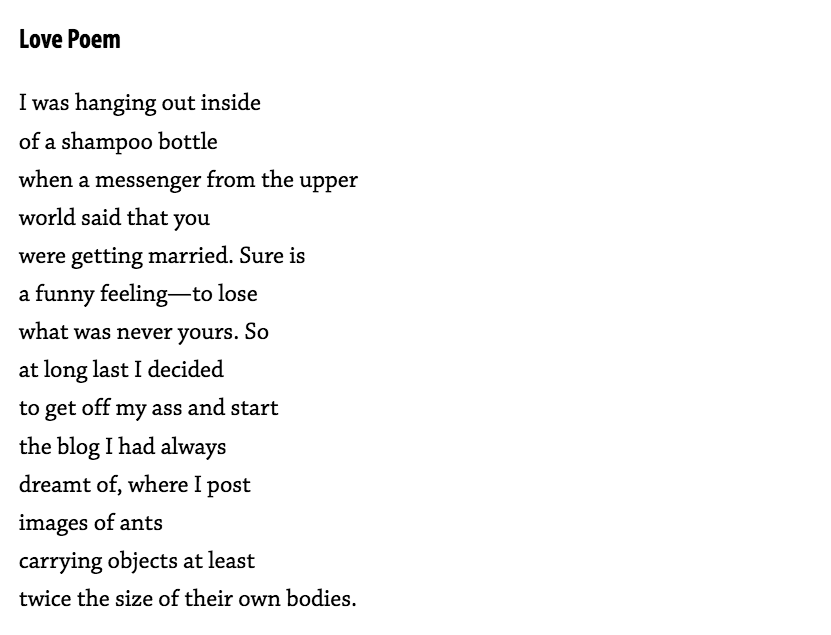



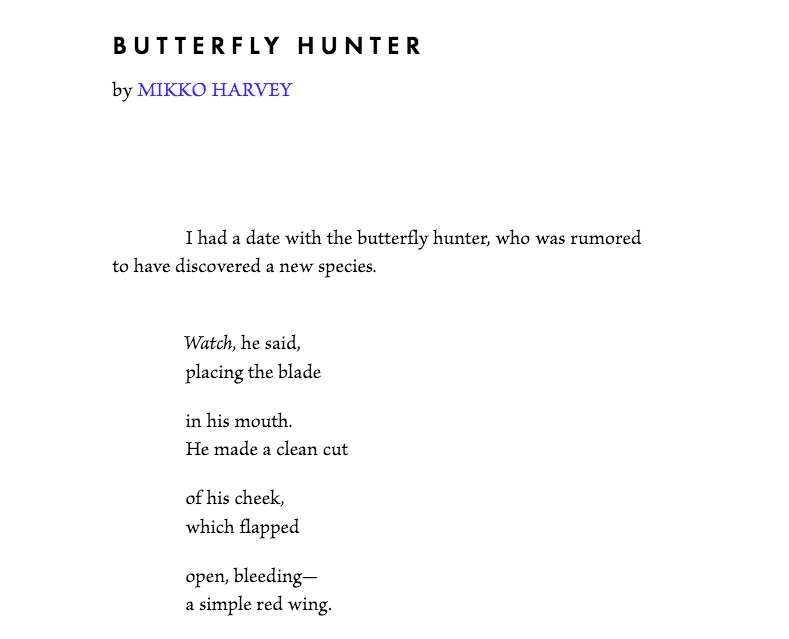
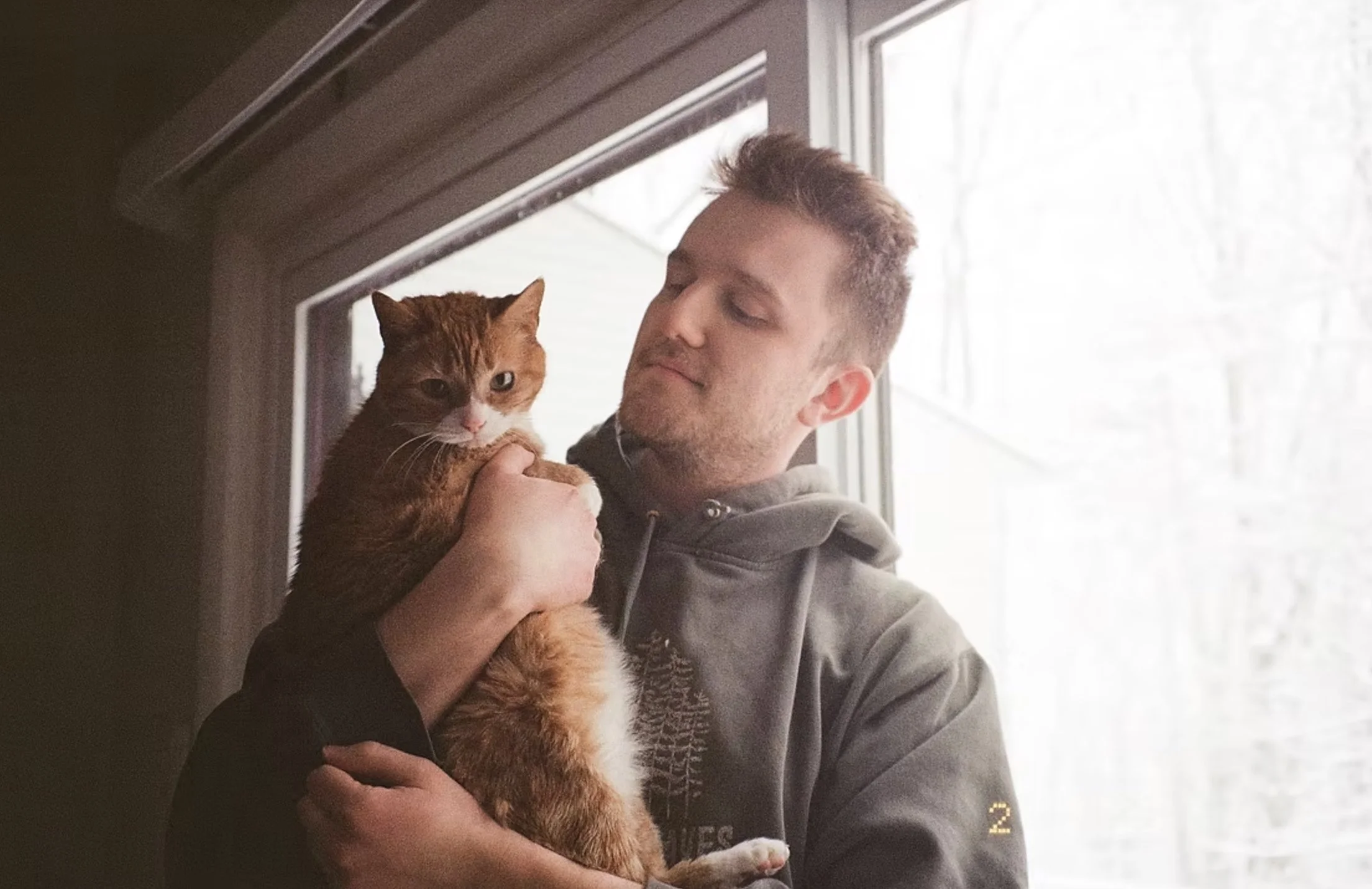
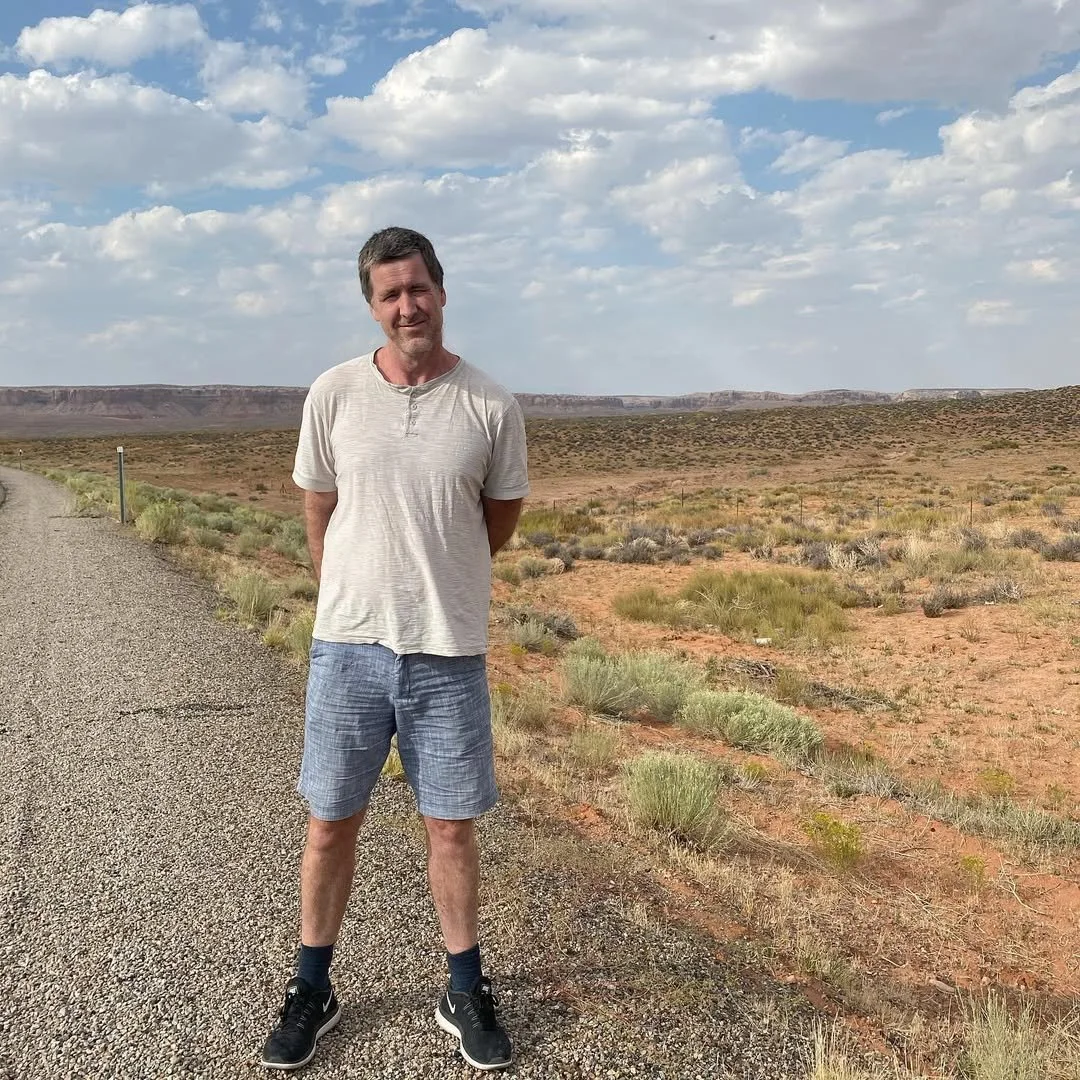
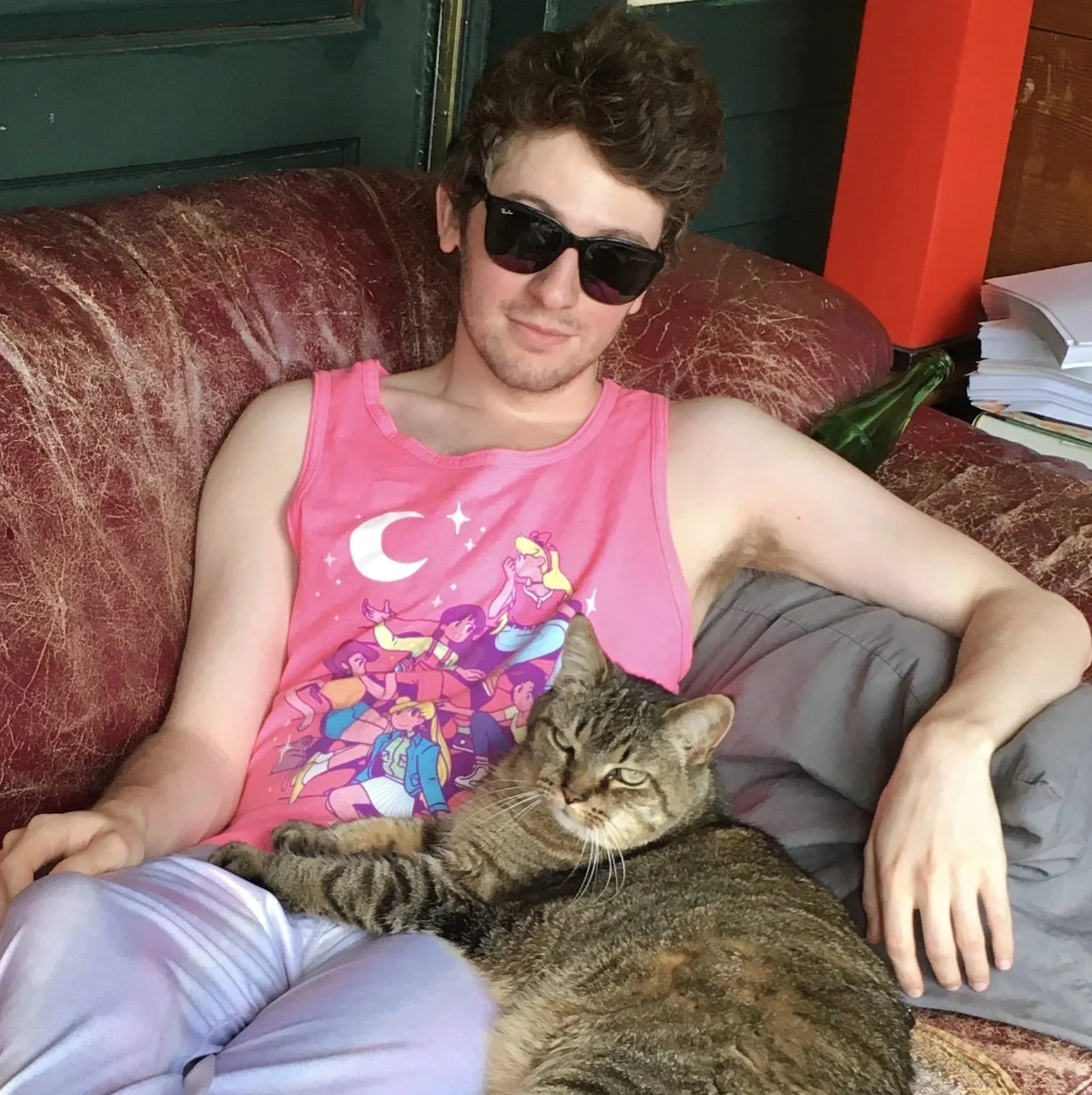
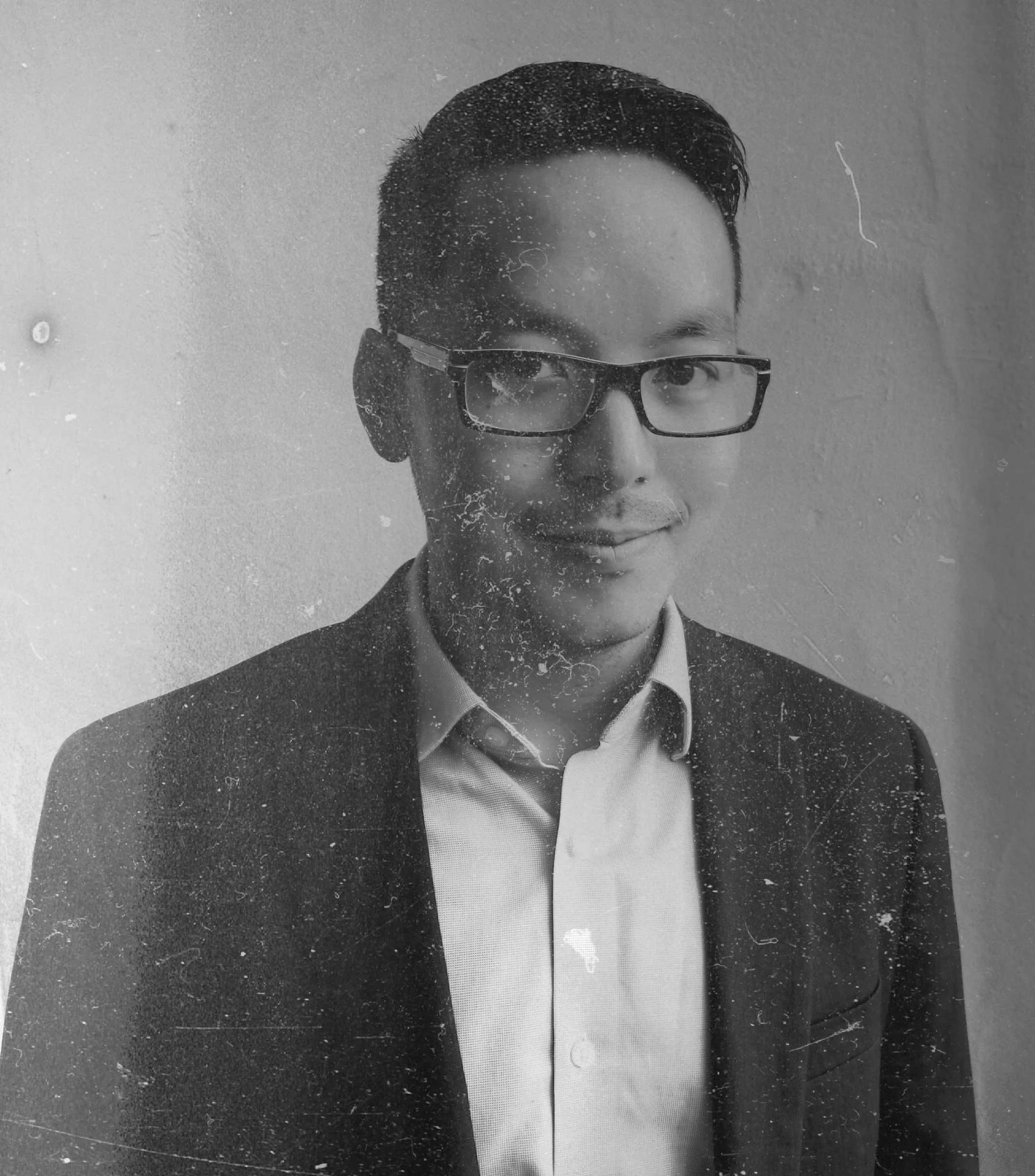
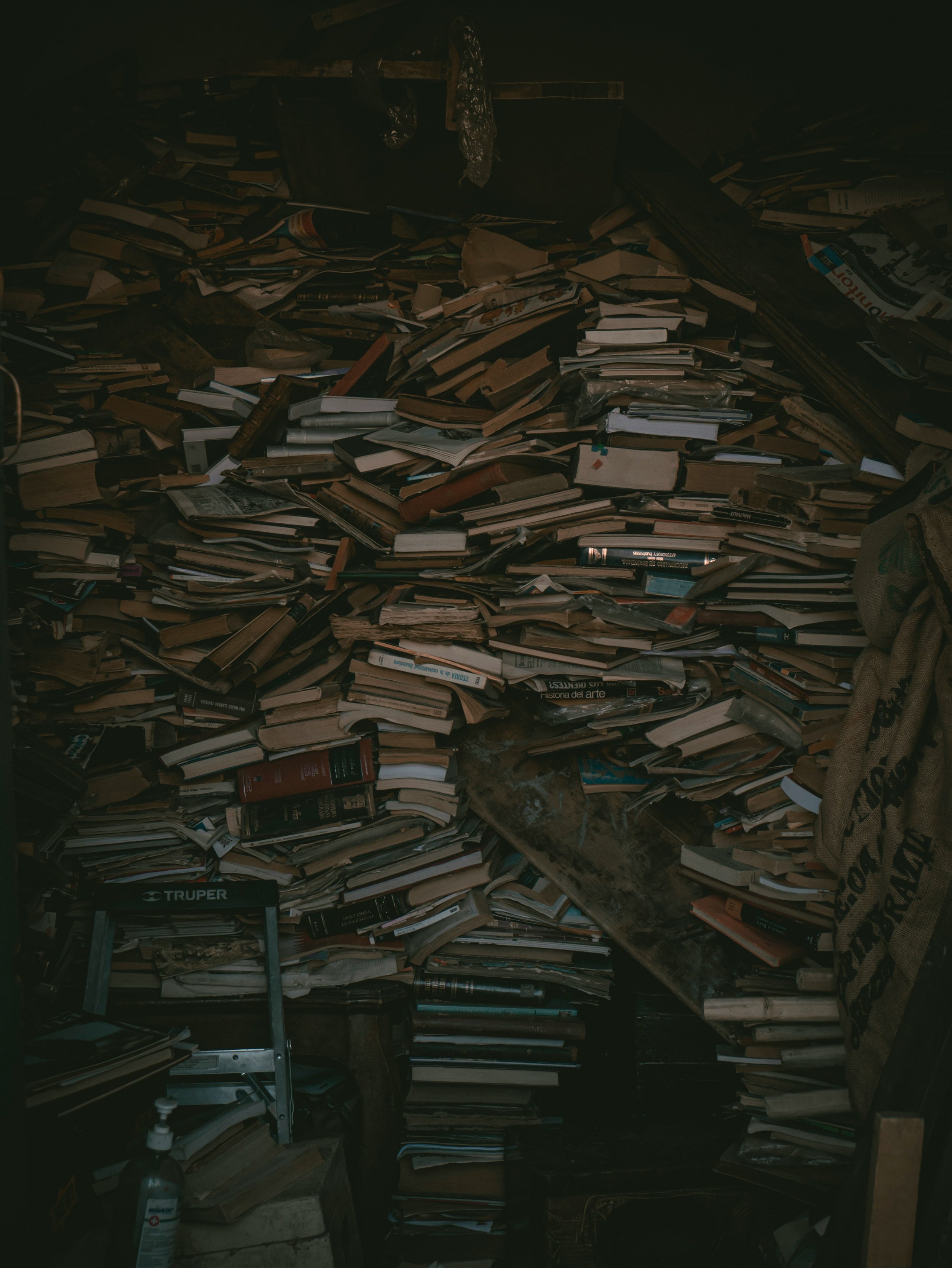












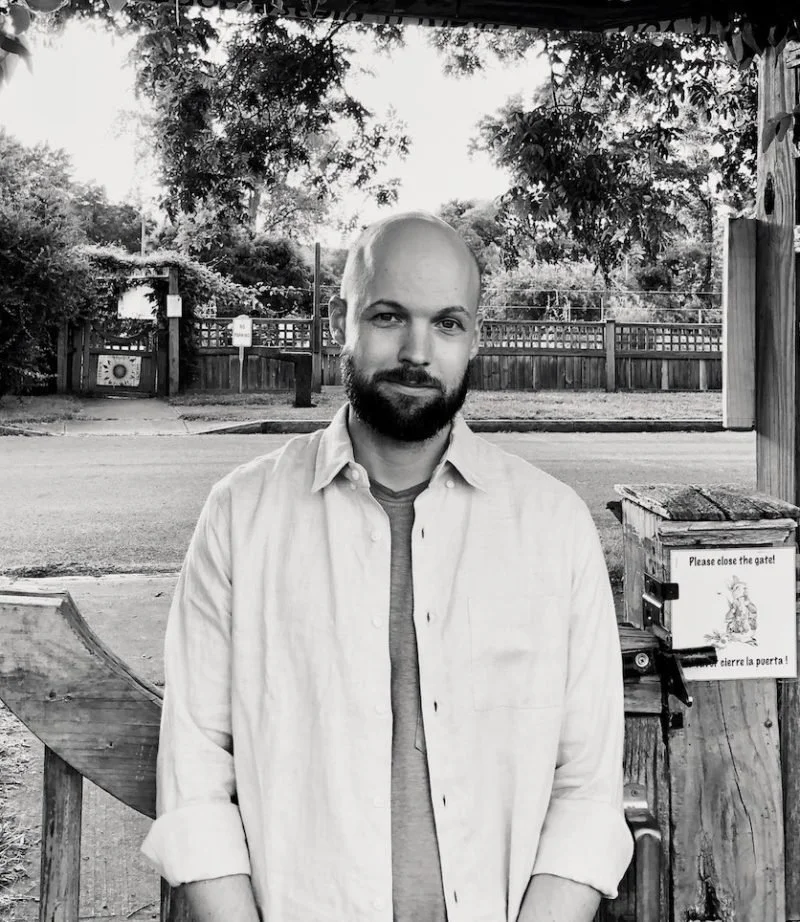

![[TITLE] written while listening to Zushi by Dean Blunt](https://images.squarespace-cdn.com/content/v1/580fa9f7e58c62cb7501937b/1665847727162-7ZB4MQGXPPQSXY3GSJX1/zushi.jpeg)



